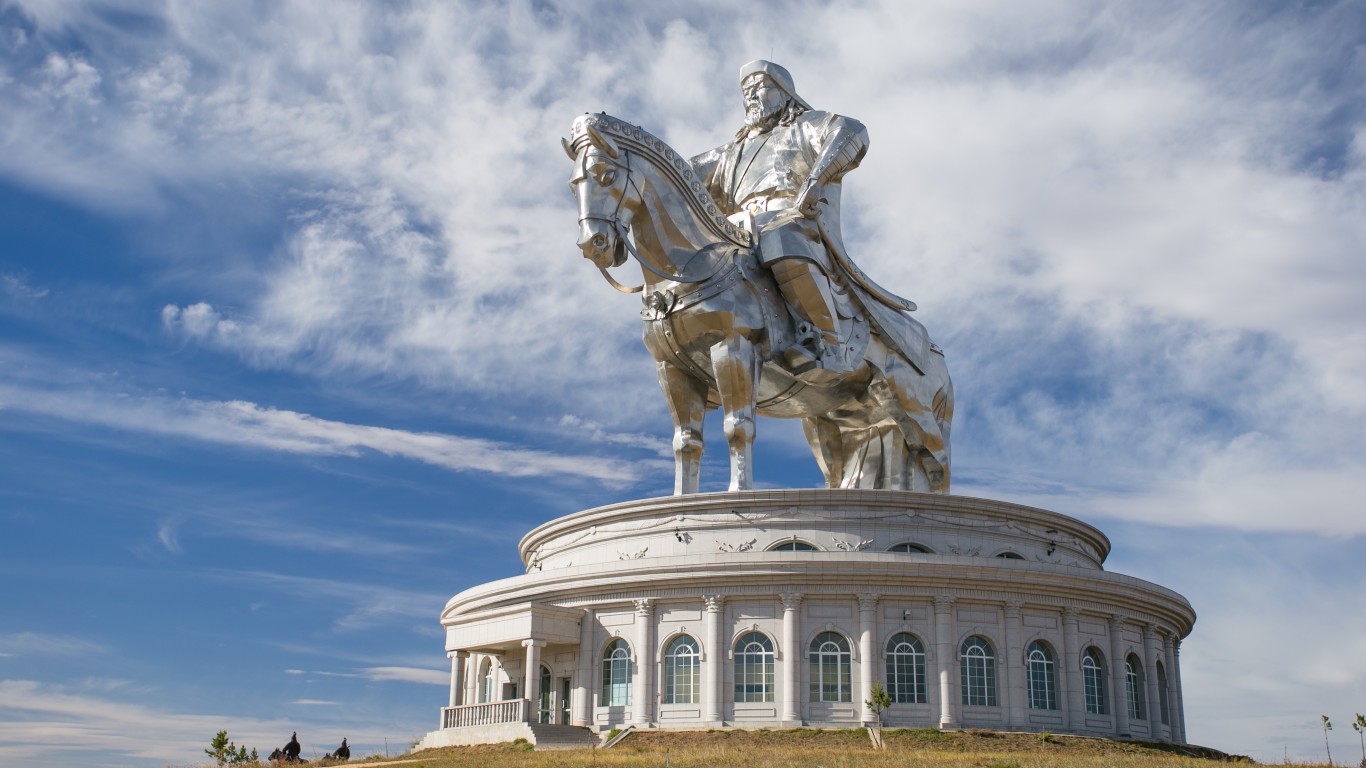
"Genghis Khan, Chinggis Khan, or Temujin, was the founder of the Mongol Empire and, after uniting the warring Mongol tribes, led them on a series of campaigns. He began the conquest of northern China (the Jin dynasty); The Mongol conquest of the Southern Song was completed decades later under his grandson Kublai Khan. Genghis Khan led an empire more than four times the size of the Roman Empire at its peak."
"He was born around 1162, died in 1227, and was buried in a secret location. At that time, the Mongolian Empire ruled from the Caspian Sea all the way to the Pacific Ocean and had fought and defeated military leaders from all over the world. And unlike other well-known imperial rulers throughout history, he left behind a foundation and political structure that allowed his empire to continue to grow long after his death."
"Claiming royal lineage is nothing new. In generations past , having a famous or noble or even royal relative could give you access to better living conditions , and privileges, and even spare you from some certain kinds of punishment. Today, this practice is continued mostly for cultural or ethnic pride, but there are some areas where certain bloodlines still afford you extra privileges."
Genghis Khan (Temujin) founded the Mongol Empire, unified warring Mongol tribes, and began the conquest of northern China (the Jin dynasty). The Mongol conquest of the Southern Song was completed decades later under his grandson Kublai Khan. He led an empire more than four times the size of the Roman Empire at its peak. He was born around 1162, died in 1227, and was buried in a secret location. The Mongol Empire then stretched from the Caspian Sea to the Pacific Ocean and had defeated military leaders worldwide. He left political structures that allowed continued imperial expansion. Claiming royal lineage historically conferred better living conditions, privileges, and protections.
Read at 24/7 Wall St.
Unable to calculate read time
Collection
[
|
...
]